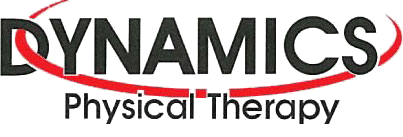Physical therapy in Northern Virginia for Shoulder
Q: I just had rotator cuff surgery and start rehab in about a month to six weeks. I don't have a job that involves manual labor but I do enjoy a high level of sports activities on the weekends. How soon will I be able to get back into action with those activities?
A: Your level of sports activity and how much demand you place on the shoulder will definitely be a guide to your rehab program. The first variable is how badly was the tendon injured -- full-tears take longer to rehab compared with partial tears.
Your surgeon will be able to give you a better idea what to expect now that the procedure has been completed. Sometimes, it's only after they get in there and see how much and what kind of damage has been done before they even know what type of surgery must be done and then what kind of rehab is needed.
For the first four to six weeks, the arm is held in a sling with a special abduction pillow to keep the arm out slightly from the body. This places the shoulder joint in the best position to encourage tendon healing. If there is a massive tear, this time might be extended up to six or seven weeks.
As you have probably found out already, certain motions are allowed and even encouraged right away. Usually, a physical therapist shows patients how to move in such a way as to avoid losing motion in the elbow, forearm, wrist and fingers.
The therapist performs passive motions of the shoulder joint in order to help keep you from getting a stuck or frozen shoulder. Passive movements means the therapist guides the patient in keeping the healing tendon relaxes and does all the motion(s) for you. Gradually, you will be allowed to assist with these motions until eventually, you'll be doing them actively (i.e., all by yourself).
When the tendon is healed and there's full motion in the joint, muscle strengthening is started. That doesn't usually begin for at least two, sometimes three months after the procedure. For patients who are involved in sports recreationally or competitively, sports-specific exercises are added to the program toward the end of rehab.
Most patients are able to return to the sport of their choice about four to six months after rotator cuff repair or reconstruction. This can vary depending on the amount of damage, type of surgery, patient compliance (don't do anything you aren't supposed to; do what you are told to do!), and any complications that might arise during the post-operative period.
Ask lots of questions and make sure you know what you are supposed to do, when to do it, and how to do it. Be consistent with your rehab and home program and you shouldn't have any problems getting back to the activities you love.
Reference: Joo Han Oh, MD, PhD, et al. Effect of Age on Functional and Structural Outcome After Rotator Cuff Repair. In The American Journal of Sports Medicine. April 2010. Vol. 38. No. 4. Pp. 672-678.


